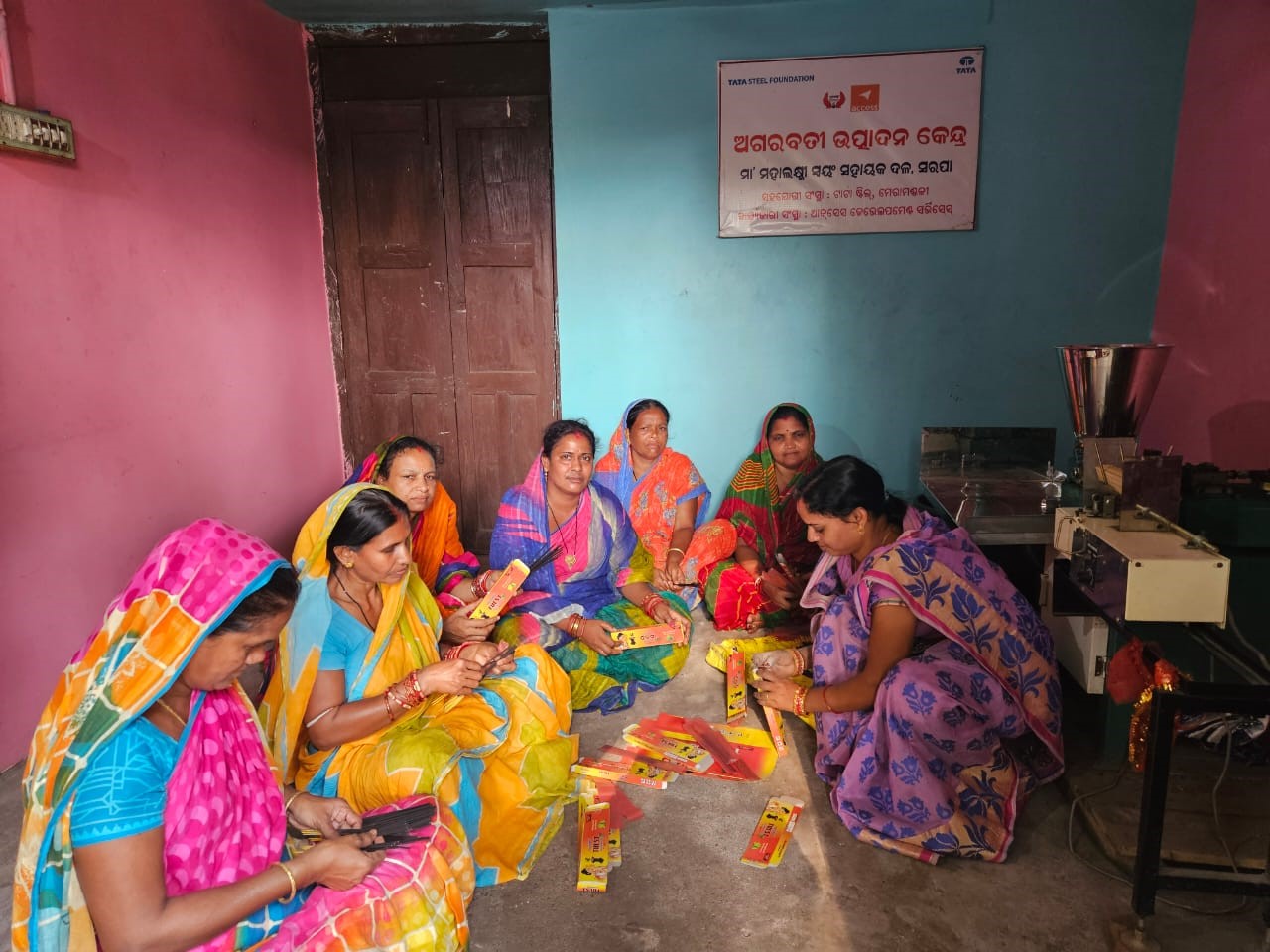Subscribe our Weekly Newsletter
Individual Contractor- NAMASTE Coordinator

Organization: UNDP
Apply By: 25 Jun 2025
Location: New Delhi(Delhi)
About the Organization
UNDP has been working in India since 1951 in almost all areas of human development. Together with the Government of India and development partners, we have worked towards eradicating poverty, reducing inequalities, strengthening local governance, enhancing community resilience, protecting the environment, supporting policy initiatives and institutional reforms, and accelerating sustainable development for all. With projects and programmes in every state and union territory in India, UNDP works with national and subnational government, and diverse development actors to deliver people-centric results, particularly for the most vulnerable and marginalized communities. As the integrator for collective action on the Sustainable Development Goals (SDGs) within the UN system, we are committed to supporting the Government of India’s national development vision and priorities and accelerating the achievement of the SDGs for the people and the planet.
Job Description
The NAMASTE Coordinator, to be embedded within the Ministry of Social Justice and Empowerment (MoSJE), will serve as UNDP’s key technical and programmatic resource to support the effective national roll-out of the National Action for Mechanized Sanitation Ecosystem (NAMASTE) scheme. The coordinator will work under the guidance of MoSJE and in close collaboration with UNDP, NSKFDC, MoHUA, state governments, urban local bodies (ULBs), and implementing partners. The role is central to ensuring smooth coordination, inter-ministerial convergence, technical advisory, data-driven implementation, and the delivery of time-bound, inclusive, and scalable interventions.
The coordinator is expected to support activities across multiple thematic areas of the scheme including enumeration of the waste workers, skill development, access to social security schemes, monitoring and evaluation, and capacity building. This includes managing operational processes, strengthening data systems, documenting best practices, mitigating implementation risks, and enabling long-term sustainability of the programme. The coordinator will be responsible for providing technical and programmatic support to NSKFDC for the planning, monitoring, and implementation of the Waste Pickers Component under the NAMASTE Scheme, as per the agreed work plan between UNDP and NSKFDC. The Coordinator will act as the key liaison between UNDP and NSKFDC, ensuring alignment, timely execution, quality assurance, and adaptive problem-solving throughout the project duration.
All plans, interventions, and activities developed or proposed by the coordinator must be reviewed, endorsed, and approved by UNDP prior to execution. The Coordinator will be expected to be physically present at the NSKFDC/ MoSJE/ UNDP office to ensure seamless coordination and alignment across stakeholders.
The specific responsibilities of the coordinator will include the following:
- Programme Coordination and Stakeholder Engagement
- Support finalization and operationalization of the state-wise implementation plan, including quarterly milestones for enumeration, training, and social security linkages.
- Coordinate with State PMUs and ULBs to facilitate smooth rollout of training, enumeration, IEC campaigns, and PPE distribution activities.
- Liaise with UNDP teams and relevant technical partners to ensure adherence to the LoA deliverables and timelines.
- Assist NSKFDC in maintaining a consolidated activity calendar and review tracker.
Technical Backstopping
- Provide technical inputs on enumeration strategy, capacity-building modules, and IEC material dissemination to enhance field-level outcomes.
- Coordinate with training partners and ensure alignment of content with project goals (e.g., social security literacy, occupational safety).
- Liaise with UNDP in reviewing IEC designs and identifying relevant outreach opportunities or networks.
- Facilitate integration of district-level enumerator/focal point data into helpline backend.
- Draft multilingual call scripts and FAQs for helpline agents covering scheme features, complaint redressal, and referral protocols.
- Prepare structured meeting agendas, briefing notes, minutes, and invitations for review meetings, state workshops, and consultations.
Capacity Building and Institutional Strengthening
- Coordinate the design and facilitation of peer learning engagements across stakeholder groups to foster knowledge exchange and best practices.
- Support institutional strengthening of NSKFDC, state departments, and ROs to enable independent, long-term management of NAMASTE interventions.
- Organize and support state-level consultations and workshops in collaboration with UNDP and MoSJE/MoHUA.
- Maintain regular communication with State PMUs, NGOs, ULB focal points, and enumerators.
- Flag emerging challenges or policy gaps and support in developing evidence-based solutions or adaptations.
Monitoring, Evaluation, and Reporting
- Support the implementation of the monitoring and evaluation (M&E) framework in coordination with relevant stakeholders.
- Assist in implementing a fortnightly review mechanism to track progress across states and identify emerging bottlenecks.
- Ensure usage of a standardized monitoring format, as developed by UNDP, for consistent documentation and reporting.
- Review and compile enumeration progress, social security linkages, and training outcomes based on district-level data from ROs and implementing partners.
- Develop the quarterly and annual progress reports, case documentation, and presentations for internal and external stakeholders.
Knowledge Management and Communications
- Document best practices, and innovations emerging from NAMASTE implementation.
- Develop case studies, success stories, SOPs and thematic briefs to support national learning and policy influence in consultation with NSKFDC and UNDP.
- Coordinate with communication teams for IEC material, digital campaigns, and awareness outreach that respects the dignity and voice of sanitation workers.
Administrative and Logistical Support
- Support in managing day-to-day internal coordination, documentation, and record keeping for NAMASTE-related activities.
- Prepare agendas, background notes, and meeting minutes, and track follow-ups from key review meetings and stakeholder engagements.
- Assist in planning and executing national-level events, and progress reviews, etc.
- Provide support in additional tasks and responsibilities as assigned by the manager, in alignment with project objectives.
Education Qualification/Required Skills & Experience
Min. academic education
- A master’s degree in public policy, Urban/Infrastructure Management, Social Work, Development Studies, Public Administration, Environmental Studies, or other relevant fields from a recognized institution.
- Candidates with a Bachelor’s degree in a related field may also be considered if they meet the required experience threshold but a Master’s degree is strongly preferred.
Min. years of relevant work experience
- A minimum of 7 years of relevant professional experience with a Master’s degree, or 9 years with a Bachelor’s degree, is required.
- The experience should be in programme coordination and implementation within sectors such as sanitation, waste management, social protection, livelihoods, or public service delivery. Prior experience supporting government programmes/schemes is desirable, along with a demonstrated ability to coordinate with multiple partners, particularly at the national and state levels.
- Experience working with government departments, international development agencies, or multi-stakeholder programmes is highly desirable.
Required skills and competencies
- Proven experience in coordinating with government departments, facilitating inter-ministerial convergence, and supporting national/state-level implementation of schemes.
- Experience in developing SOPs, technical guidelines, tracking frameworks, and monitoring dashboards.
- Excellent communication, reporting, and documentation skills in English. Working knowledge of Hindi is desirable.
- Proficiency in MS Office and familiarity with digital tools such as MIS platforms, mobile data collection, and visualization dashboards.
Desired skills
- Sound understanding of, informal workforce integration, and public service delivery models in urban and rural settings
- Ability to navigate and align national schemes, policies, and institutional frameworks, especially in the areas of social protection, livelihoods, and urban sanitation
- Proven experience in working with government departments, ULBs, and multi-tiered governance structures, with the ability to build consensus and coordinate across diverse stakeholders.
- Strong commitment to integrating gender equity and social inclusion, particularly in enhancing the dignity and rights of sanitation workers and marginalised communities.
- Capacity to respond to emerging challenges, field-level constraints, and evolving ministry priorities with practical, context-driven solutions.
- Demonstrated ability to manage deliverables independently, meet milestones, and translate field experiences into actionable insights, case studies, and best practices for national scale-up
Required Language(s)
- Proficiency in English and Hindi
For more information please check the Link
Join us for the 12th Edition of India CSR & ESG Summit 2025 | Register Now
Latest Fellowships
Latest Grants
Latest News
© Renalysis Consultants Pvt Ltd

























.jpeg)
.jpg)
, Punjab Police and Ms Harkirat Kaur CEO Hartek Foundation.jpg)
